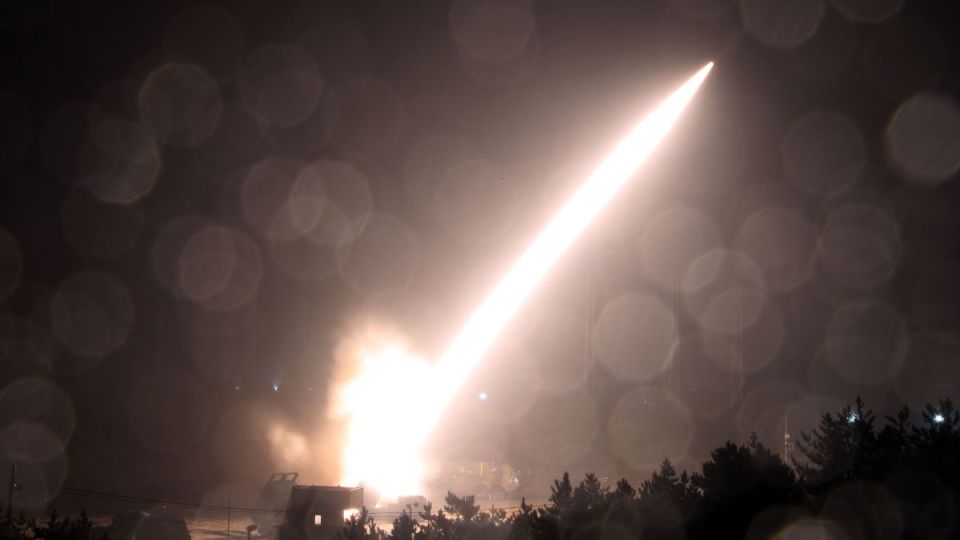October 7, 2022
BEIJING – A Chinese ambassador to the United Nations on Wednesday urged all related parties to stay calm and exercise restraint and not to make any moves that may escalate tensions on the Korean Peninsula.
China has noticed the Democratic People’s Republic of Korea’s (DPRK) recent missile launch activities, and that the US and other countries have recently held joint military exercises in the region.
“The DPRK’s recent launch activities are all before and after military exercises, and they do not exist in isolation,” said Geng Shuang, China’s deputy permanent representative to the UN.
Geng said the DPRK’s recent missile launches are directly related to a series of recent military exercises in the region. He said the US and other countries have carried out nuclear submarine cooperation and also claimed to deploy strategic assets in the region.
“These actions are intensifying conflicts, creating tension, and raising the risk of confrontation,” Geng said. “The settlement of the peninsula issue is inseparable from a sound political and security environment. It is hoped that the relevant countries will put regional peace and security first and create a favorable environment for peace and stability on the peninsula.”
The DPRK launched two ballistic missiles toward its eastern waters on Thursday, as the US redeployed one of its aircraft carriers near the Korean Peninsula in response to the DPRK’s launch of a long-range ballistic missile over Japan on Tuesday.
Thursday’s launch was the DPRK’s sixth round of weapons firings in less than two weeks.
The US and the Republic of Korea have been responding by firing land-to-land ballistic missiles and precision-guided bombs dropped from fighter jets.
“At this critical moment when the situation on the Korean Peninsula continues to be tense, all parties concerned should focus on the overall situation of peace and stability on the peninsula, remain calm, exercise restraint, be cautious in words and actions, and avoid moves that may exacerbate tensions or lead to escalation of the situation on the peninsula,” Geng told a UN Security Council meeting on nonproliferation/DPRK.
Geng said the peninsula issue is intricate and fundamentally a contradiction between the US and the DPRK.
“However, the US side did not respond according to the action-for-action principle,” said Geng.
“The denuclearization measures taken by the DPRK side have not been responded to, and its legitimate concerns have not been resolved, resulting in a deadlock in the DPRK-US dialogue and worsening mutual trust between the DPRK and the US,” he said.
At the same time, said Geng, the US has recently strengthened its military alliance in the Asia-Pacific region, heightened the risk of military confrontation, and pursued double standards and political manipulation on the nuclear issue, which has “poisoned the regional security environment. Against this background, the situation on the peninsula will inevitably become tense,” said Geng.
Geng said that historical experience shows that dialogue and consultation are the only viable way to resolve the peninsula issue. If dialogue advances smoothly, positive progress will be made. If dialogue is stalled or even backtracks, tensions will escalate.
“China calls on the US to take concrete actions, show its sincerity and address the DPRK’s legitimate concerns, so as to create conditions for the early resumption of dialogue,” the envoy said.
Geng pointed out that resolving the issue requires the Security Council to play a constructive role, rather than just exerting pressure.
“Its discussion and deliberation should contribute to de-escalation, not fuel tensions; promote the resumption of dialogue, not widen differences; forge unity, not create divisions,” he said.
“As a close neighbor of the peninsula, China has been closely following developments on the peninsula and has always insisted on maintaining peace and stability on the peninsula, achieving a denuclearized peninsula, and resolving the issue through dialogue and consultations,” said Geng.
The Global Security Initiative proposed by China has important, guiding significance for the settlement of the peninsula issue, Geng said.
“China once again calls on all parties concerned to handle and resolve the Korean Peninsula issue in keeping with the principle of indivisible security, take the dual-track approach guided by the principle of moving forward in phases with synchronized steps, and jointly promote the process of political settlement of the peninsula issue,” Geng said, adding that China is willing to continue to play a constructive role in that regard.


